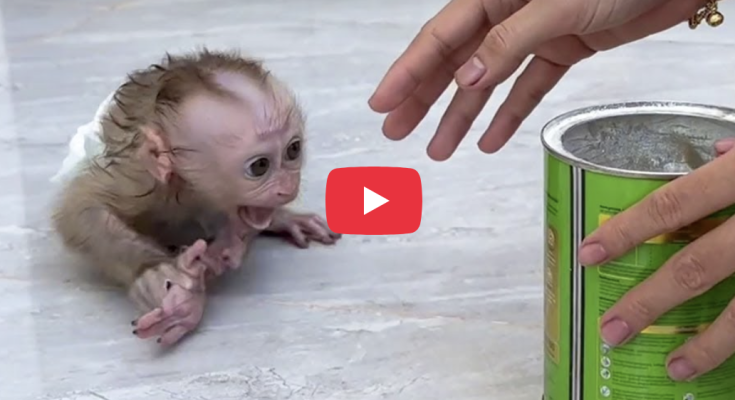Certainly! Here’s a 500-word article based on the provided title, along with a new, engaging title.
Original Title:
0MGod!! Very Spoid Jenna Angry Mom Put Her Down When Milk Time
New Title:
Mom Gets Frustrated and Puts Down Spoiled Baby Jenna During Milk Time
Article:
Parenting can be both a joy and a challenge, especially when dealing with a fussy or spoiled toddler. One such situation involved little Jenna, whose behavior during milk time tested her mother’s patience. Jenna, a young child known for being a bit spoiled, became especially upset when it was time to drink her milk, leading to a moment of frustration for her mom.
It was a typical morning, and Jenna’s mother was preparing her milk. As she gently offered the bottle, Jenna suddenly refused to cooperate. Instead of calmly accepting her drink, Jenna began throwing tantrums, crying loudly, and refusing to sit still. Her spoiled behavior was on full display, with her mom trying her best to soothe her and encourage her to drink. However, Jenna’s tantrum grew more intense, and her mother’s patience started to wear thin.
Feeling overwhelmed and frustrated, Jenna’s mom made a quick decision: she gently put Jenna down on the floor, hoping that a brief moment apart might help calm her down. This moment of frustration is common among parents when children throw tantrums, especially if they are spoiled or accustomed to getting their way. While it’s natural to feel upset, it’s important to handle such situations with patience and understanding.
Jenna’s behavior might have stemmed from a variety of reasons—tiredness, hunger, seeking attention, or simply defiance. Whatever the cause, her mother recognized that forcing Jenna to drink or getting into a power struggle wouldn’t help the situation. Instead, she chose to step back momentarily, giving Jenna space to cool down. This approach can often prevent escalation and help children learn to regulate their emotions.
After a few moments, Jenna’s mother gently called her back, speaking in a calm and soothing voice. She explained, in simple terms, that it was time to drink her milk and encouraged Jenna to try again. Sometimes, offering a distraction—such as singing a favorite song or making funny faces—can help redirect a toddler’s attention and reduce tantrums.
This incident highlights a common challenge for parents: balancing discipline with empathy. While it’s natural to feel frustrated when a child misbehaves or refuses to cooperate, responding with anger or harshness can worsen the situation. Instead, providing a calm, consistent response teaches children appropriate ways to express their emotions and listen to boundaries.
Parents should remember that tantrums are a normal part of child development, especially for spoiled children who may be used to getting what they want. Patience, consistency, and gentle guidance are key to helping children learn self-control and acceptable behaviors.
In conclusion, Jenna’s tantrum during milk time was a moment of parental frustration, but her mother’s calm approach and decision to give her space helped de-escalate the situation. Such moments are opportunities for parents to teach children about patience, boundaries, and emotional regulation, ultimately strengthening the parent-child relationship.
If you’d like any adjustments or a different tone, just let me know!



